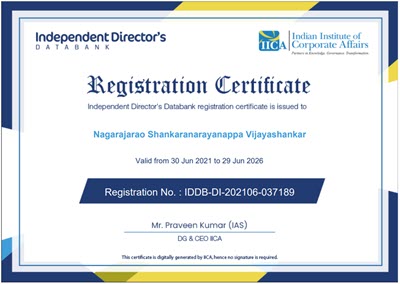Governor of RBI has clarified that out of the 26 applications received by RBI for new Banking license, not all otherwise eligible applicants will be granted the license. RBI has also clarified that it would take about 3-4 months for scrutiny of the applicants before handing the short listed applications to an external consultant. It is preferable that the licenses are not taken up for issue before the next Parliamentary elections as otherwise there would be political pressure to grant licenses to preferred groups.
In a hard hitting article in Economic Times in the form of an open letter to the RBI Governor, Mr Jaithirth Rao a veteran Banker himself and a leading Software professional at present has cautioned the RBI about the possibility of large business houses misusing the Banking license and later forcing the Government to bail out not only the Banks promoted by them but also the group companies that might have acquired large stake in the Bank.
Mr Rao has rightly pointed out that
“Banks controlled by large conglomerates will almost certainly set back the entrepreneurial movement in the country, where the emerging ecosystem is allowing persons without inherited wealth a semblance of access to capital.”.
I fully agree with the views expressed by him since we are all aware of how large corporates have misused the present Banking system itself without having any management control and can take a guess at what would happen when they also have the management control.
Mr Rao has put in his arguments about the large business conglomerates ostensibly keeping Reliance,Tatas, Birlas, Videocon group etc in mind.
I would like to add a word of caution on the few Public Sector aspirants in the fray such as the Postal Department, Tourism Finance Corporation, IFCI etc. These may turn out to be grossly inefficient and become pawns in the hands of the respective ministers who control the parent departments. Today the entire Banking industry is under the control of the Finance Ministry and after the issue of licenses to some of the public sector aspirants, other ministries can have their own departmental Banks.
To avoid such possibilities, RBI should be able to filter the applications with utmost care and not depend only on the ability of the promoters to find the relevant capital. Creating a capital base which can be later on systematically eroded is not difficult for the money managers of the large corporates.
RBI should therefore place “Integrity” of the management and “Ability to serve the Community” at the top of their evaluation criteria since all the applicants will certainly fulfill other aspects such as capital requirements. The composition of the Board of management proposed by these groups and independent directors should also give an indication of how the Banks can be “ring fenced” from influences that could endanger the future of Banking industry.
RBI should therefore undertake a “Socio Economic Cost Benefit Analysis” while evaluating the proposals giving due weightage to the social benefits that a group’s proposal may promise apart from providing a viable business plan. The concept of “Socio Economic Cost Benefit Analysis” has long been forgotten by the Financial analysts and has been replaced by the “Shareholder’s wealth maximization concept”. I wish RBI revives the Socio-Economic analysis as an instrument for taking their decision. It would be better if such reports on each of the 26 business plans submitted or to be submitted by the applicants is also made public so that all of us can feel confident that the right group is able to get the licenses.
Naavi
Related Article:










